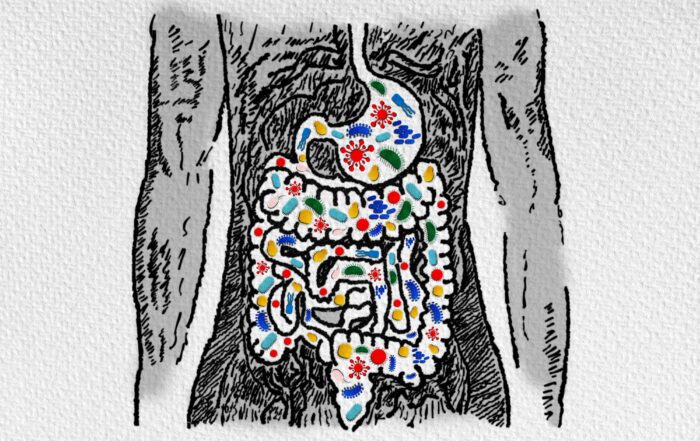Whether you are an individual with autism or a parent to a loved one with an autism spectrum disorder, you may want to stay informed about scientific research related to ASD. You can find information on the internet and other media channels, but how accurate is that information? Knowing how to understand scientific research studies can help you find reliable and relevant information.
This article is a tool to help you assess information about autism based on scientific principles. As you put these recommendations into practice, remember to use critical thinking and common sense when assessing any claim about autism. Combining an understanding of scientific research studies with your own powers of reasoning can help you:
- Make evidence-based decisions
- Understand recommendations from your care team and discuss them knowledgeably
- Minimize overwhelm
- Advocate for yourself or your family member with autism.

Good autism research – like all medical research – meets three criteria: It is based on scientific principles and procedures, it has been peer-reviewed, and the study is able to be replicated. We’ll explore each of these criteria in more detail below.
Special thanks to Anissa Ryland and the staff of The Johnson Center for Child Health and Development for helping to develop some of the guidelines and information included in this article.
What is a peer-reviewed study?
Peer-review is a process that academic journals use to understand if the studies they publish are based on good research. Before including a study in their publication, the journal sends the research out to other experts in the field.
Experts who were not involved in the original study check that the study design applies scientific principles and procedures. They also use their own knowledge of the subject to determine whether the results and conclusions make sense based on available data. The editor of the journal takes their recommendations into account when deciding whether to publish the study.
Some scientific journals have been in print longer than others or are more respected in their field. Readers can use a metric called an impact factor to decide if the journal that printed a particular study is a reliable source of information. The Impact factor is the total number of times articles from that journal were cited, divided by the total number of citable articles in that journal during that span of time.
The impact factors of various journals are calculated and printed yearly in Journal Citation Reports. You can find the current impact factor of most journals with a quick web search. Keep in mind that a journal must exist for at least two years before its impact factor can be calculated.
Where to find research
Many groups, organizations, and individuals write about autism. Whenever you come across a new treatment or new information about autism, you can check the validity by seeking out original sources.
Places to find original sources:
- PubMed
- ERIC
- Google Scholar
- University websites
- Journal websites
Some of these research aggregation services are free, others cost money. For paid services, check with your local library to see if they can connect you with a free account. You can also ask your clinician to provide you with research related to specific treatments, comorbidities, and symptoms
Types of studies
You may come across several different types of studies as you read and learn about autism. Each study type can be used to investigate topics related to autism, but some have a wider application than others. Get to know the different study types so you can think critically about how the research applies to you or your child with autism.
- Animal and Cell Studies – Observe and test animals or cell cultures. These types of studies provide initial insight, but the application to humans may not be clear.
- Case Reports – A written record on a single subject. Each case study represents an individual experience. This can be a starting point for research. It does not prove that what worked for one individual will work for others.
- Case Series – A group of case reports that track multiple subjects. Remember that correlation is not causation. That means that two things can happen around the same time, but that doesn’t prove one caused the other.
- Case-Control Studies – Look at the experiences of two groups of subjects, one group with autism and one without. The investigation is retrospective, meaning it looks at experiences in the past and attempts to draw conclusions. Causation is hard to prove with this type of study.
- Cohort Studies – Track two groups, ex. One group of people with autism and one group without or one group that receives treatment and one that does not. It notes differences in outcomes for the two groups.
- Randomized Controlled Trials – Randomly assigns subjects to either a test group or a control group. The test group receives the treatment while the control group receives a placebo. This type of study can be blind (study subjects don’t know which group they’re in) or double-blind (experimenters also don’t know which group the subjects are in).
- Systematic Review – Compares and contrasts the results of several randomized controlled trials and draws conclusions based on the quality of the study and on their results.
Assessing information about autism and autism treatments
The following questions will help you use what you’ve learned to assess information about autism and autism treatments. Remember that critical thinking skills are your most valuable tools in assessing any claim about autism spectrum disorder.
What is the source of this information? Blog posts, books, pamphlets, social media posts, websites, news stories, or other non-journal sources can bring information to your attention, but it’s up to you to check their sources. Is the information based on studies and research or is it the opinion of the author?
Who performed this research? What people, groups, universities, or businesses were involved in this study? Do they have a track record of producing reliable autism research?
Who funded this research? Does the researcher or institution have any conflicts of interest that I should be aware of? What businesses, funding sources, products, or services, might benefit from the results of this study?
Has the research been peer-reviewed? Does it appear in a peer-reviewed journal? What is the impact factor of that journal?
Has it been replicated? Have other scientists used the same method to achieve the same results? If not, why not? Be cautious about accepting any claim that has not been tested by other researchers or studies.
What other works are cited in the study? Are the researchers basing their work on good science? Have they cited earlier studies published in peer-reviewed journals?
Reading and assessing biomedical research studies takes practice. Navigating autism research can be overwhelming at first, but critical thinking and common sense, along with the knowledge you’ve gained in this article, can help you assess information. Stop and think whenever you read a new statement about autism treatments, possible causes, or potential outcomes. Before acting on any new information go to the source to check the validity of the claim.
For more on understanding autism research, watch this webinar from The Johnson Center.
Scientific Research Glossary
| Term | Definition |
|---|---|
| Biomedical research | The scientific study of biological processes and the causes and treatment of diseases or disorders. May also be called experimental medicine. |
| Causation | The action of causing something. Ex. My untied shoe was the causation of my fall. |
| Correlation | A connection between two or more things. |
| Placebo | A pill, procedure, or process designed to do nothing but act as a comparison for a controlled treatment. |
| Subject | A person who participates in a scientific study by being observed, tracked, monitored, or otherwise investigated. |
| Impact Factor | The total number of times articles from a journal were cited, divided by the total number of citable articles in that journal in a timeframe no shorter than two years. |
| Peer-reviewed | A study or publication that has been independently vetted by experts in the field. |
| Scientific Journal | A periodical publication that prints or reports on new research. |
| Researcher | A scientist who conducts a study to investigate a hypothesis. |
Autism and Sleep – Research Updates
Dara S. Manoach, Ph.D., discusses research updates on autism and sleep. She outlines aspects of a good night’s sleep and emphasizes the role of sleep cycles in cognition, memory, and learning.
Animal study reveals clues that developmental vitamin D deficiency may be associated with gut alterations in autism
Vitamin D deficiency is strongly implicated as a risk factor for autism spectrum disorders (ASD), and researchers in Australia report evidence that vitamin D deficiency during early development may increase the likelihood
New multi-national study adds to evidence linking alterations of the gut microbiome to autism
Strong new evidence linking alterations of the gut microbiome to autism spectrum disorders (ASD) comes from a new multi-national study by James Morton and colleagues. In the study, researchers in North America,
Editorial: Revisiting Two Lesser-Known Teaching Strategies to Enhance Speech Production in Autism
In this editorial, I would like to shed light on two methods for improving the speech production of individuals on the autism spectrum, discuss potential neurological factors that may underlie their effectiveness,
Sleep problems in infancy associated with ASD, autism traits, and social attention alterations
A new study from the United Kingdom indicates that sleep problems in infancy may help to predict later social skills deficits, autism traits, and autism diagnoses in children. Jannath Begum-Ali and colleagues
Constipation in infancy associated with higher likelihood of autism diagnosis
More evidence linking autism spectrum disorders (ASD) to gastrointestinal problems comes from a study by researchers in Taiwan and the United States, who report that ASD occurs at an elevated rate in







